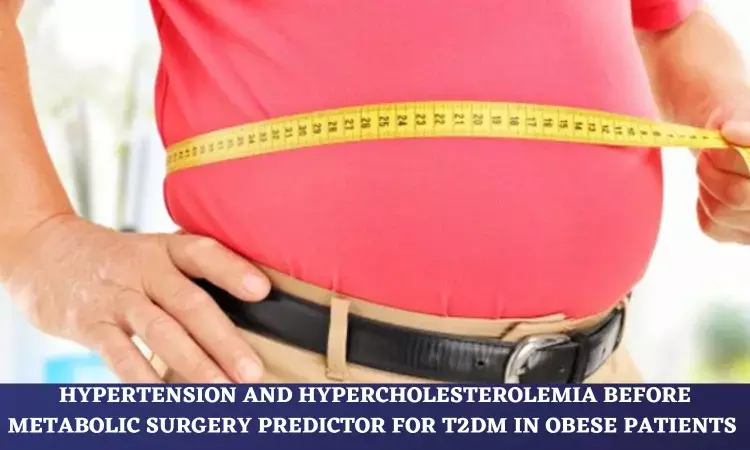- Home
- Medical news & Guidelines
- Anesthesiology
- Cardiology and CTVS
- Critical Care
- Dentistry
- Dermatology
- Diabetes and Endocrinology
- ENT
- Gastroenterology
- Medicine
- Nephrology
- Neurology
- Obstretics-Gynaecology
- Oncology
- Ophthalmology
- Orthopaedics
- Pediatrics-Neonatology
- Psychiatry
- Pulmonology
- Radiology
- Surgery
- Urology
- Laboratory Medicine
- Diet
- Nursing
- Paramedical
- Physiotherapy
- Health news
- Fact Check
- Bone Health Fact Check
- Brain Health Fact Check
- Cancer Related Fact Check
- Child Care Fact Check
- Dental and oral health fact check
- Diabetes and metabolic health fact check
- Diet and Nutrition Fact Check
- Eye and ENT Care Fact Check
- Fitness fact check
- Gut health fact check
- Heart health fact check
- Kidney health fact check
- Medical education fact check
- Men's health fact check
- Respiratory fact check
- Skin and hair care fact check
- Vaccine and Immunization fact check
- Women's health fact check
- AYUSH
- State News
- Andaman and Nicobar Islands
- Andhra Pradesh
- Arunachal Pradesh
- Assam
- Bihar
- Chandigarh
- Chattisgarh
- Dadra and Nagar Haveli
- Daman and Diu
- Delhi
- Goa
- Gujarat
- Haryana
- Himachal Pradesh
- Jammu & Kashmir
- Jharkhand
- Karnataka
- Kerala
- Ladakh
- Lakshadweep
- Madhya Pradesh
- Maharashtra
- Manipur
- Meghalaya
- Mizoram
- Nagaland
- Odisha
- Puducherry
- Punjab
- Rajasthan
- Sikkim
- Tamil Nadu
- Telangana
- Tripura
- Uttar Pradesh
- Uttrakhand
- West Bengal
- Medical Education
- Industry
Preoperative Hypertension and Hypercholesterolemia Predict T2DM Persistence After Metabolic Surgery in Obese Patients

Spain: A recent study published in Diabetes Research and Clinical Practice has found that preoperative hypertension and hypercholesterolemia, along with longer diabetes duration and higher HbA1c concentrations, are independent predictors of type 2 diabetes (T2DM) persistence after metabolic surgery.
Metabolic surgery has been identified as the most effective therapeutic strategy for managing T2DM. However, little is known about the preoperative factors that may affect T2DM remission after metabolic surgery.
In a prospective study of 98 patients with T2DM undergoing metabolic surgery, researchers collected data on clinical, anthropometric, and biochemical parameters at baseline and 1 year following surgery.
The study concluded with the following clinical findings:
1. Patients without T2DM remission after metabolic surgery had a longer duration of diabetes and higher HbA1c levels.
2. Higher percentage of these patients were using insulin therapy, antihypertensive drugs, and lipid-lowering therapies before surgery compared to those who achieved T2DM remission.
3. Patients with hypertension or hypercholesterolemia before surgery had a lower percentage of T2DM remission after surgery.
4. Patients with longer diabetes duration also had a lower percentage of T2DM remission after surgery.
5. Diabetes duration, basal HbA1c, and the presence of hypertension and hypercholesterolemia before surgery were inversely related to T2DM remission following metabolic surgery, after adjusting for sex, age, waist circumference, and type of surgery in a logistic regression model.
The study’s findings suggest that patients with preexisting hypertension or hypercholesterolemia, as well as those with longer diabetes duration and higher HbA1c levels, may require more aggressive management strategies to achieve T2DM remission after metabolic surgery.
The researcher of the study added that “The study's results may also have implications for clinical practice, as they suggest that preoperative hypertension and hypercholesterolemia should be considered when selecting patients for metabolic surgery.”
Reference:
Martínez-Montoro, J. I., Generoso-Piñar, M., Ocaña-Wilhelmi, L., Gutiérrez-Repiso, C., Sánchez-García, A., Soler-Humanes, R., Fernández-Serrano, J. L., Sánchez-Gallego, P., Martínez-Moreno, J. M., García-Fuentes, E., Tinahones, F. J., & Garrido-Sánchez, L. (2023). Hypertension and hypercholesterolemia are predictive factors associated with type 2 diabetes persistence after metabolic surgery: A prospective study. Diabetes Research and Clinical Practice, 199, 110650. https://doi.org/10.1016/j.diabres.2023.110650
Dr. Mahalakshmi Sivashankaran joined Medical Dialogues as an Intern in 2023. She is a BDS graduate from Manipal College of Dental Sciences, Mangalore Batch 2022, and worked as a Junior Resident at VMMC & Safdarjung Hospital at the Department of Dental Surgery till January 2023. She has completed a Diploma in Executive Healthcare management from the Loyola Institute of Business Administration, developing skills in Healthcare Management and Administration. She covers several medical specialties including Dental, ENT, Diagnostics, Pharmacology, Neurology, and Cardiology.
Dr Kamal Kant Kohli-MBBS, DTCD- a chest specialist with more than 30 years of practice and a flair for writing clinical articles, Dr Kamal Kant Kohli joined Medical Dialogues as a Chief Editor of Medical News. Besides writing articles, as an editor, he proofreads and verifies all the medical content published on Medical Dialogues including those coming from journals, studies,medical conferences,guidelines etc. Email: drkohli@medicaldialogues.in. Contact no. 011-43720751


